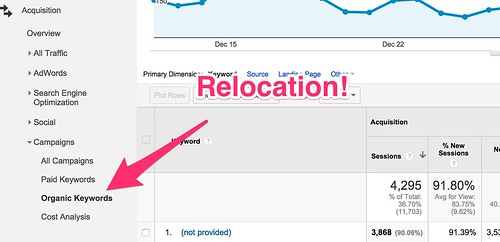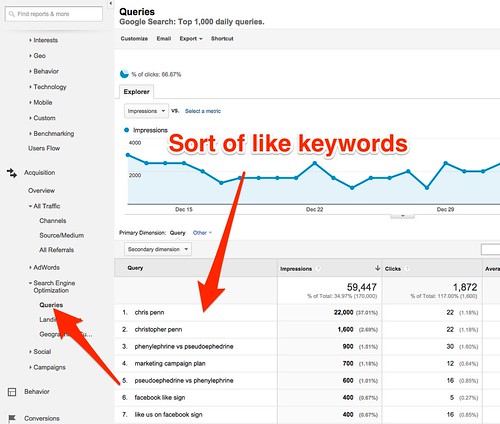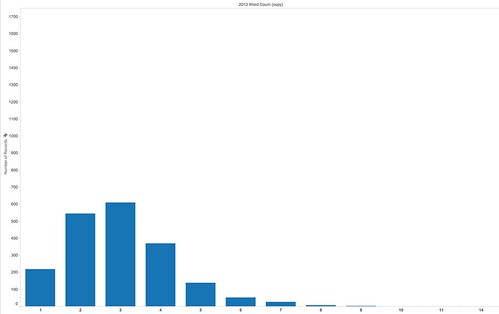In a tacit acknowledgement that (not provided) basically killed keyword-based optimization, Google Analytics over the weekend relocated organic keyword tracking, burying it inside the campaigns menu. Why the change? For years now, fewer and fewer keywords were being picked up by web analytics software. Encrypted search and mobile are the two reasons they’ve vanished from our radar; as you can see, just in the last 30 days, more than 90% of keywords are coming in as (not provided):
So what’s a marketer to do? A few things. First, be sure to set up Google’s free Webmaster Tools for your website. While you won’t get keyword lists per se, you will get the queries people type into Google for which Google displays your site:
If you think about this, this is what Google has said you should be aiming for; not individual words or tiny phrases, but the actual topics for which you’re relevant. With services like OK Google and Siri, search queries will continue to get longer and longer. In the last year, the number of words in search queries for my personal site has increased from 2.99 to 3.44, and the number of queries has exploded from 1,600 to nearly 5,000. Queries are getting longer and more diverse.
Here’s 2013 (scale adjusted to be equivalent) search terms by number of words:
Here’s 2014:
Did my site suddenly get more popular in 2014? No, but the diversity of terms that people used to find me exploded. There were more 4+ word terms in 2014 than there were all combinations in 2013.
So how do you take advantage of this trend? The reality is that you can’t do keyword stuffing and narrow-focused keywords any longer. You have to expand to focus on the topic that you want to be relevant for. The reason is that you can’t accurately predict what people are going to search for. By writing topically, rather than focused around just a handful of keywords, you’ll be more likely to show up in search for the longer, more complex queries.
Think human! Look at your own search history, as an example. Look at how you search for information that’s relevant, and then model your content based on how you naturally search. Use Webmaster Tools, Quora, and Trends to expand your topic horizons.
The narrow-focused keyword SEO of the past is fading away. Be ready for much broader search horizons!
Updated: Vincent Tobiaz pointed out in the comments that the original screenshot was wrong – keywords got buried in campaigns instead of being removed entirely. Thanks!
You might also enjoy:
- You Ask, I Answer: AI Music Collaborations and Copyright?
- Almost Timely News: Principles-Based Prompt Engineering (2024-02-25)
- Almost Timely News, Febuary 18, 2024: From Comment to Content
- Almost Timely News: Recipes vs. Principles in Generative AI (2024-03-03)
- Mind Readings: You Need Passwords for Life in the Age of Generative AI Fraud
Want to read more like this from Christopher Penn? Get updates here:
 Take my Generative AI for Marketers course! |






Leave a Reply